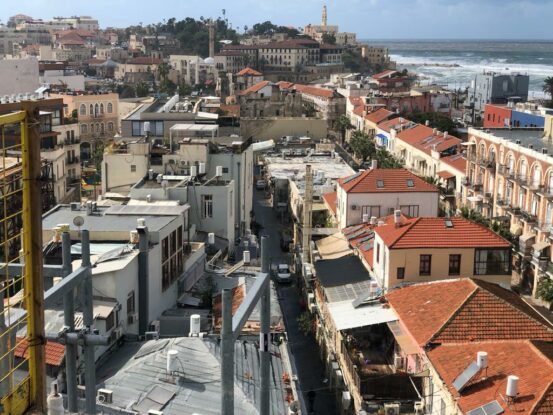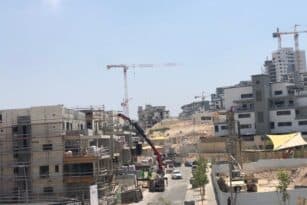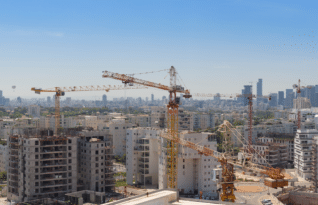Prices, bureaucracy, interest rates, and judiciary reform are just some of the issues impacting real estate in Israel. In honor of Passover, Buyitinisrael brings you: The Ten Plagues of the Housing Market in Israel. Next year in your home in Israel!
Anyone who has ever attempted to purchase an apartment in Israel knows that this is not an easy task – prices are prohibitive, bureaucracy is endless and if you are a foreign resident, it is not a given that you will be able to transfer money from overseas in order to make the transaction. All this has been compounded in the past six months by additional challenges, including rising interest rates and economic and social chaos created by the advancement of legal reform. In honor of Passover, Buyitinisrael presents The Ten Plagues of the Housing Market in Israel.
1. Prices
The cost of apartments is the main setback to the housing market in Israel, where prices simply do not make sense. This was true in mid-2020, and even more so today, after a nearly 30% increase in home prices within two years.
While the average price of an apartment in Israel was NIS 1.96 million in the fourth quarter of 2022, the average salary in the economy is currently NIS 12,120. In other words, theoretically, the average Israeli is required to dedicate 162 salaries to an apartment over 13.5 years. It is doubtful whether there is a parallel to this in the Western world. In high-demand areas, prices are higher – in Tel Aviv the average apartment price is 4.2 million shekels, and in Jerusalem 2.75 million shekels.
This means that an increasing proportion of Israelis do not stand a chance of purchasing an apartment, and will be forced to continue living in rent forever or until an inheritance – if there is one.
2. Rising interest rates
The high level of interest rates is the main reason for a halt in the housing market. Since April 2022, the Bank of Israel has revised the interest rate eight times in a row, from 0.1% to 4.25% today. In other words, the prime interest rate is 5.75%. The reason for the move is clear: the desire to curb inflation, which stood at 5.3% in 2022, a 20-year high.
The increase in the interest rate has several consequences: it reduces the purchasing power of buyers and thus pushes price levels down (not a bad thing in itself), and also reduces demand in general since there is a certain segment of buyers who can no longer get approved for a mortgage at the current interest rate. The bulk of the mortgage industry belongs to those who have already purchased an apartment with a high level of leverage in recent years, and now find that their level of monthly repayment is soaring.
3. Construction costs
After many years in which there was almost no change in the Construction Cost Index – the index that assesses the change in construction costs, the past two years (February 2021 to February 2023) saw these costs jump by a cumulative 11% (about 4.5% in the past year alone).
A main factor for the increase in prices was COVID-19, which increased both the prices of goods and transportation costs and significantly limited the movement of professional manpower (a large part of which comes from China in the construction industry). Another reason is the war in Ukraine, which has also affected the prices of raw materials, many of which come from Russia and Ukraine.
4. The high-tech crisis
The boom experienced by the real estate industry in the two years, which began in the second half of 2020 and ended at the end of 2022, relied to a large extent on huge amounts of capital that flowed into the country due to the flourishing of the global high-tech industry in general, and in Israel in particular. This money was used by industrial workers, among other things, for real estate investments. The negative aspect of the phenomenon was a sharp rise in prices in the market. Now, the crisis in the high-tech industry which began in the fourth quarter of 2022, reflected in waves of layoffs of thousands of employees so far, has also stopped the large flow of capital into the industry, which has led to the halt of real estate deals, first and foremost in Tel Aviv.
5. Bureaucracy
This is a longstanding problem of the housing market in Israel and is considered to be one of the main reasons why the market struggles to rapidly increase the volume of apartments when there is increasing demand, which leads to a new hike in prices, as we experienced between the end of 2020 and the middle of 2022.
While steps have been taken in the planning field over the past decade that have significantly improved the scope of approval of plans, in the area of licensing – that is, issuing building permits or occupancy permits (Form 4) – the situation is still difficult and requires developers and architects to juggle various bodies, including the fire department, the Home Front Command, the Israel Electric Corporation and, of course, the local authority – which itself has no interest in promoting construction quickly – as discussed in the next section.
6. Local government
For years, municipalities were considered one of the main causes for delaying residential construction (not all, but a significant portion of them), which led the state to concentrate efforts on solving the barrier, in the form of “umbrella agreements” in which the municipalities receive various benefits against a commitment to rapidly promote high-scale construction in their territory.
The main culprit that gives municipalities a negative incentive for residential construction is the Arnona structure in Israel. While municipal taxes for residential areas are low and municipal taxes for office space are four times higher, it is actually the users of residential space – that is, residents – who consume expensive services on a high scale: education, welfare, culture, and more. The result is that every new residential apartment adds to the municipal deficit. In the framework of the current Arrangements Law, the government is trying to improve the situation by means of a new division of municipal property tax funds according to the parameters of new residential construction.
7. Lack of infrastructure
One of the foremost reasons for the high price level, especially in the center of the country, is that despite the progress and high level of technology for which Israel is characterized, its infrastructure lags behind most Western countries. Thus, for example, in the field of transportation, the central Gush Dan metropolitan area still relies heavily on buses, and most of the population that commutes there does so by private car. It is clear that the aspiration of a large part of Israelis is to live as close as possible to the center of the country.
It’s not just the transportation sector that’s lacking. For example, the Givatayim municipality – a small city adjacent to Tel Aviv – recently stopped issuing building permits completely due to the inability to supply drinking water to the entire population. The situation of sewage treatment and drainage, especially in the densely built Dan region, is also dire, and residential plans are often delayed, sometimes for years, until an infrastructure problem in these areas is solved.
8. Difficulty in bringing money into Israel
In recent years, more and more foreign residents wishing to purchase an apartment in Israel have discovered that due to the banking system’s very strict policy regarding the entry of funds from abroad, opening a bank account in Israel is very complicated and close to impossible.
This policy has been formulated over the past decade, after many years in which the banking system actually went to the other extreme, allowing a large amount of black capital to enter Israel unhindered. It seems that the main influencer for a change in policy was extensive investigations by the American tax authorities against three large Israeli banks – Leumi, Hapoalim, and Mizrahi, which led to huge fines and even indictments against a number of senior executives. That affair has made the banks more cautious than ever, to the point of trying to avoid providing service to customers from abroad as much as possible, and this policy makes the task of purchasing an apartment extremely difficult.
As a result, in recent years a new genre of financial advisors has developed in Israel, specializing in providing services to foreign residents who wish to open an account and transfer funds to Israel for the purpose of purchasing an apartment.
9. Government instability
In a capital and investment-intensive industry such as construction, one of the most important things is certainty. Entrepreneurs taking out loans, and the entities financing them must know in detail what the expected costs are, what the pace of sales is expected to be, and what the expected revenues are. All this is very difficult to achieve in a reality in which the government changes from time to time – and so does the policy it promotes.
As is well known, five elections were held in Israel during 2019-2022, which led to the establishment of 3 governments in three years. During this period, the government adopted three different subsidized housing programs for first-home buyers – “Buyer’s Price”, “Reduced Price Housing”, and “Target Price”. Buyers of investment homes received a reduction in purchase tax from 8% to 5% in 2020, only to have it rise again a year later, and these are just two of dozens of examples of changing and contradictory policy decisions that the market has experienced in recent years.
10. Legal reform
Adding to the political uncertainty, as of January 2023, is concern about whether Israel will remain a democracy where there is a separation of powers, where no authority has absolute power. According to estimates by many economic experts, including Nobel Prize winners, legislation of the kind currently being promoted by the government through the judicial reform is expected to have devastating consequences for the Israeli economy.
At the same time, in recent weeks there has been a huge public protest, the largest since the establishment of the state, against the government’s measures being promoted on the issue.
The government’s moves, and the counter-protests, are likely to lead Israel into a spiral like never before, which will greatly intensify the element of uncertainty regarding the performance of business in the country today and further reduce motivation. This factor as well, alongside the increase in interest rates and the global economic crisis, will have a moderating effect on the housing market in Israel.
Interested in special offers and discounted new projects across Israel? Whether you’re purchasing a vacation apartment or retirement residence, making a financial investment, or thinking about Aliyah, drop us a line, when you’re ready to talk. Whatever the reason, Buyitinisrael!








